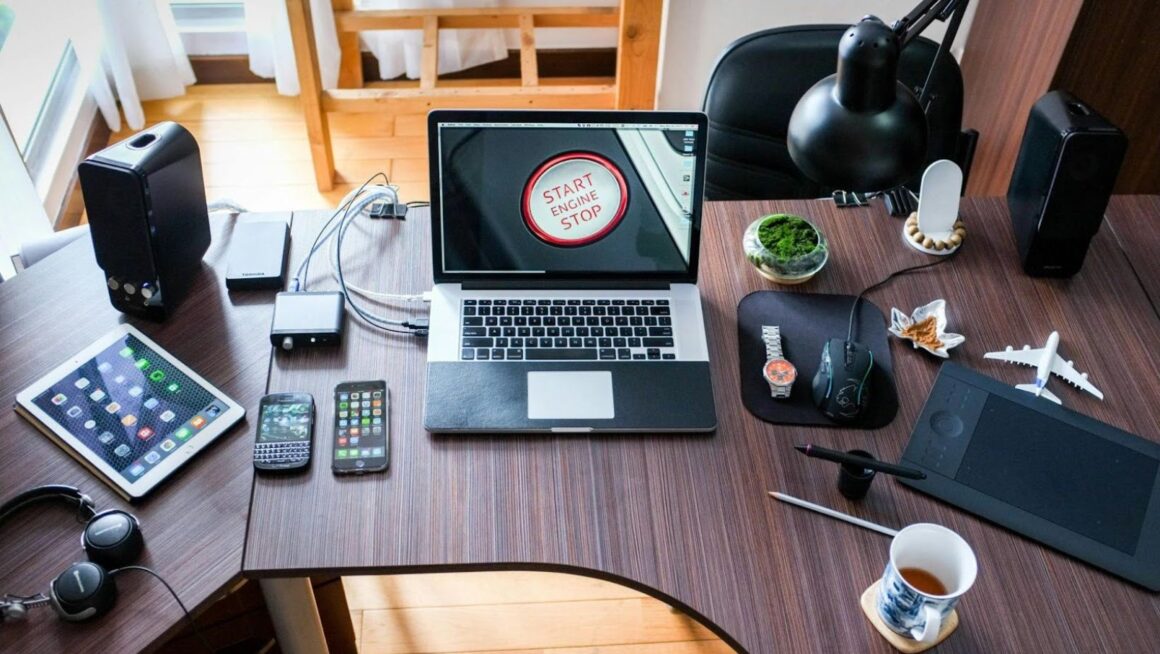Technology gets a bad rap sometimes. Critics point to screen addiction, social media anxiety, and the constant ping of notifications as evidence that our digital tools are making life worse, not better. But look past the headlines, and a different story emerges—one where thoughtfully used technology is quietly revolutionizing how people live, work, and connect in genuinely positive ways.
The secret isn’t in the flashiest gadgets or the most complex systems. Instead, the biggest lifestyle improvements come from technology that solves real problems without creating new ones. These are the tools that fade into the background, making daily routines smoother and freeing up mental energy for the things that actually matter.
Financial Wellness and Security
Financial management apps provide real-time insights into spending patterns, helping people make more informed decisions about money. Automatic savings programs can round up purchases and invest in spare change, gradually building wealth without requiring conscious effort. Cryptocurrency portfolios now integrate seamlessly with traditional financial tracking, allowing users to monitor the USD to ETH exchange rate alongside their regular investments.

Digital payment systems and budgeting tools make it easier to track expenses and stick to financial goals. Some platforms even enable automatic conversion between traditional and digital currencies based on favorable market conditions. For many people, simply having clear visibility into where money goes each month, whether in conventional accounts or cryptocurrency wallets, is transformative for long-term financial health.
Health and Wellness Revolution
Wearable devices have transformed personal health from something people only thought about during doctor visits into an ongoing conversation with their bodies. Fitness trackers don’t just count steps—they provide insights into sleep patterns, stress levels, and activity trends that help people make better decisions throughout the day.
What’s particularly powerful is how these devices democratize health monitoring. Someone doesn’t need expensive medical equipment or frequent doctor visits to understand basic health metrics. Heart rate variability, sleep quality, and activity levels are now as easy to check as the time. This real-time feedback helps people catch potential issues early and make small adjustments that prevent bigger problems down the road.
Mental health apps are breaking down barriers to wellness support by making meditation, mood tracking, and stress management exercises available anytime, anywhere. For people who might never have considered therapy or meditation classes, these tools provide a low-pressure entry point into mental wellness practices that can have profound effects on quality of life.
Smart Homes That Actually Help
Home automation has moved beyond the novelty of voice-controlled lights into systems that genuinely improve daily living. Smart thermostats learn household patterns and adjust temperature automatically, reducing energy bills while ensuring comfort. Security systems provide peace of mind without requiring expensive monitoring services or complex installation.
The real magic happens when these systems work together seamlessly. A smart home might gradually dim lights as bedtime approaches, adjust the temperature for optimal sleep, and ensure doors are locked—all without requiring any conscious effort from residents. This kind of automation reduces the mental load of managing a household, freeing up energy for more important decisions.
Kitchen technology is making healthy eating more accessible and enjoyable. Smart appliances can suggest recipes based on available ingredients, adjust cooking times automatically, and even order groceries when supplies run low. For busy families, these tools remove friction from meal planning and preparation, making home-cooked meals more feasible even on hectic days.
Work-Life Balance Enhancement
Remote work technology has given people unprecedented control over their schedules and environments. Video conferencing, cloud storage, and collaboration platforms mean that productive work can happen from anywhere with an internet connection. This flexibility allows people to design their days around personal needs rather than rigid office schedules.
Productivity apps help manage the overwhelming flow of information and tasks that define modern life. Smart calendars can automatically schedule focus time, task management systems can prioritize urgent items, and note-taking apps can capture and organize ideas across devices. These tools don’t just make people more efficient at work—they help create clearer boundaries between professional and personal time.
Automation tools can handle repetitive digital tasks like bill payments, appointment scheduling, and routine communications. By removing these small but time-consuming activities from daily routines, people gain hours each week that can be redirected toward relationships, hobbies, and rest.
Enhanced Learning and Growth
Educational technology has made high-quality learning accessible to anyone with curiosity and an internet connection. From flexible online certifications to specialized programs like the IIT Computer Science diploma, learners can now pursue in-demand technical skills from top institutions—no matter where they live or what stage of life they’re in.

Personalized learning algorithms adapt to individual learning styles and paces, making education more effective and enjoyable. Someone struggling with math can get extra practice on specific concepts, while another person can accelerate through material they already understand. This customization makes learning feel less like a chore and more like a natural part of personal growth.
Stronger Social Connections
Communication technology has revolutionized how people maintain relationships across distances and busy schedules. Video calls allow grandparents to read bedtime stories to grandchildren in other cities. Messaging apps help friends stay connected throughout the day with small moments and updates that would otherwise be lost.
Social platforms designed around shared interests rather than broad social networking help people find communities of like-minded individuals. Whether someone is passionate about urban gardening, vintage motorcycles, or indie music, they can connect with others who share their enthusiasm regardless of geographic location.
The Key to Success
The technology that most improves lifestyle shares common characteristics: it’s intuitive to use, solves genuine problems, and enhances rather than replaces human capabilities. The best tools feel like natural extensions of what people already want to do, removing obstacles rather than creating new complexities.
Success with technology comes from being intentional about adoption—choosing tools that align with personal values and goals rather than simply chasing the latest trends. When used thoughtfully, technology becomes an invisible foundation for a more fulfilling, connected, and purposeful life.

